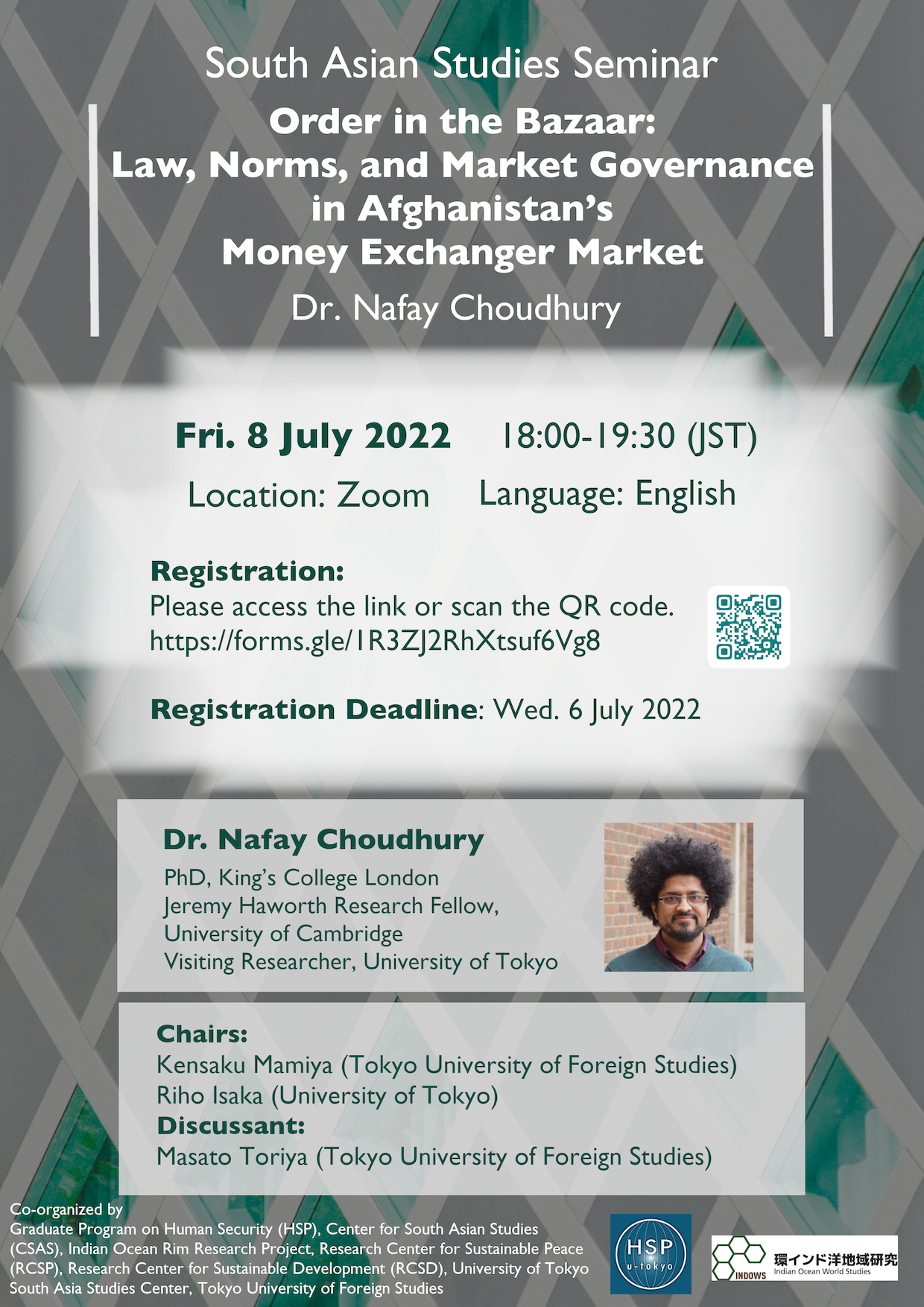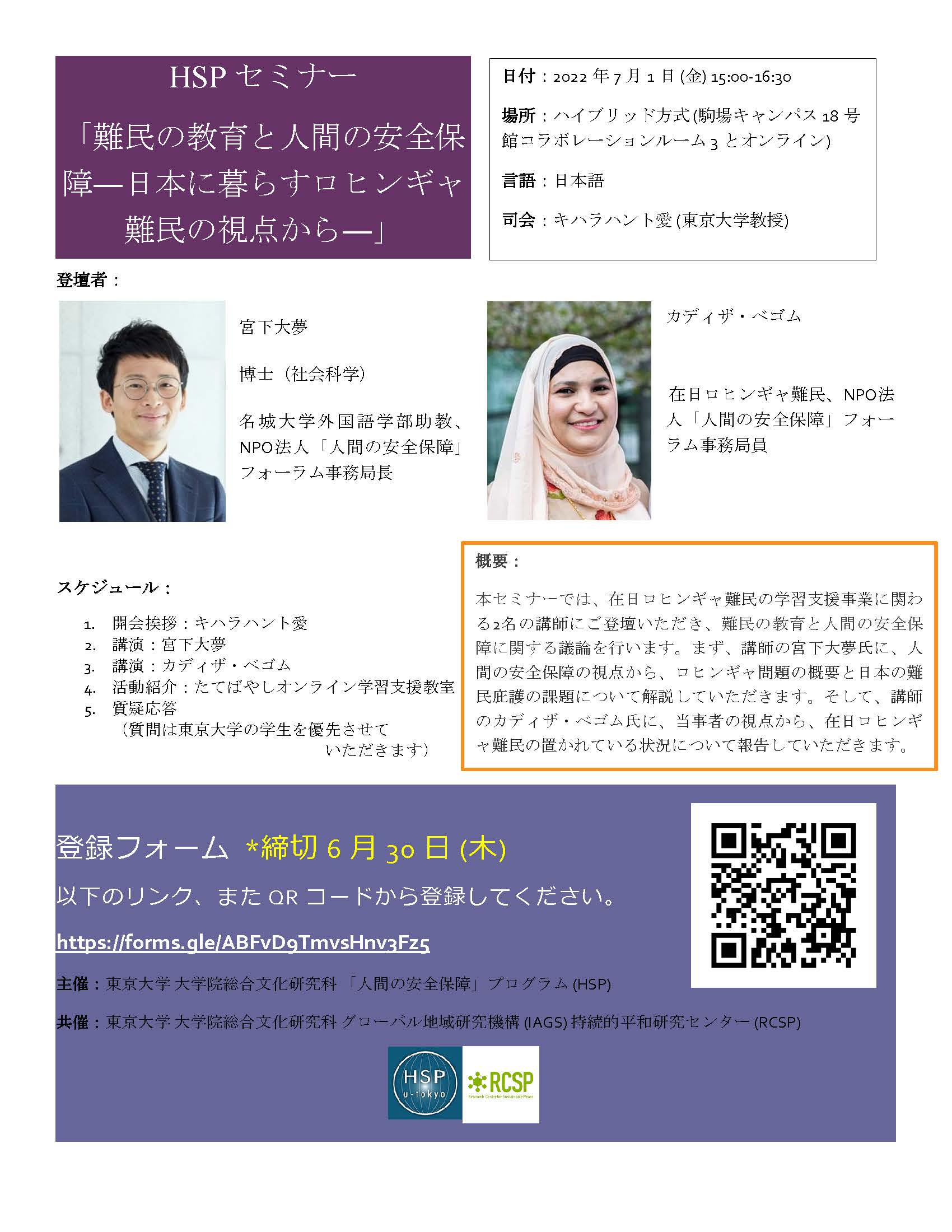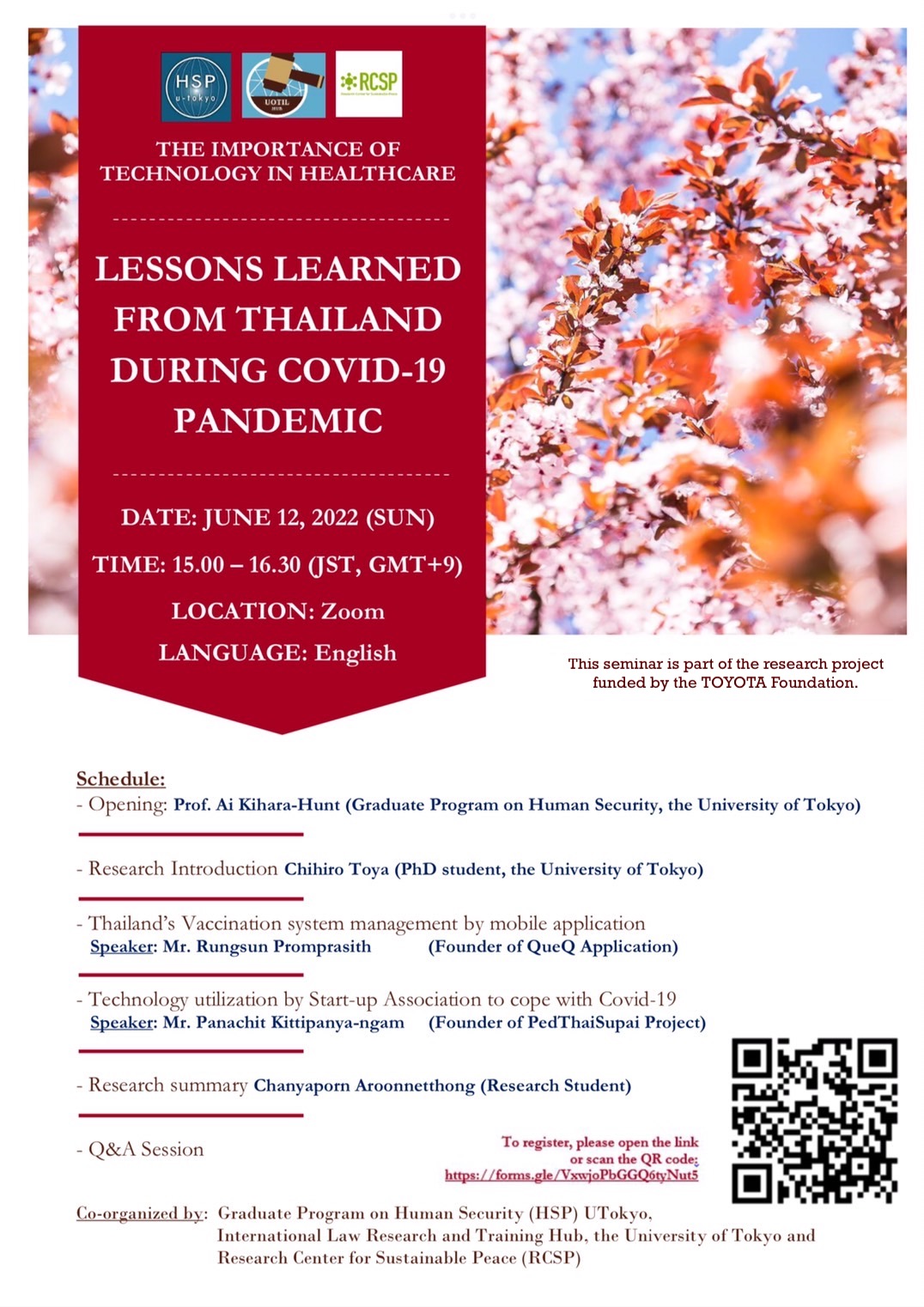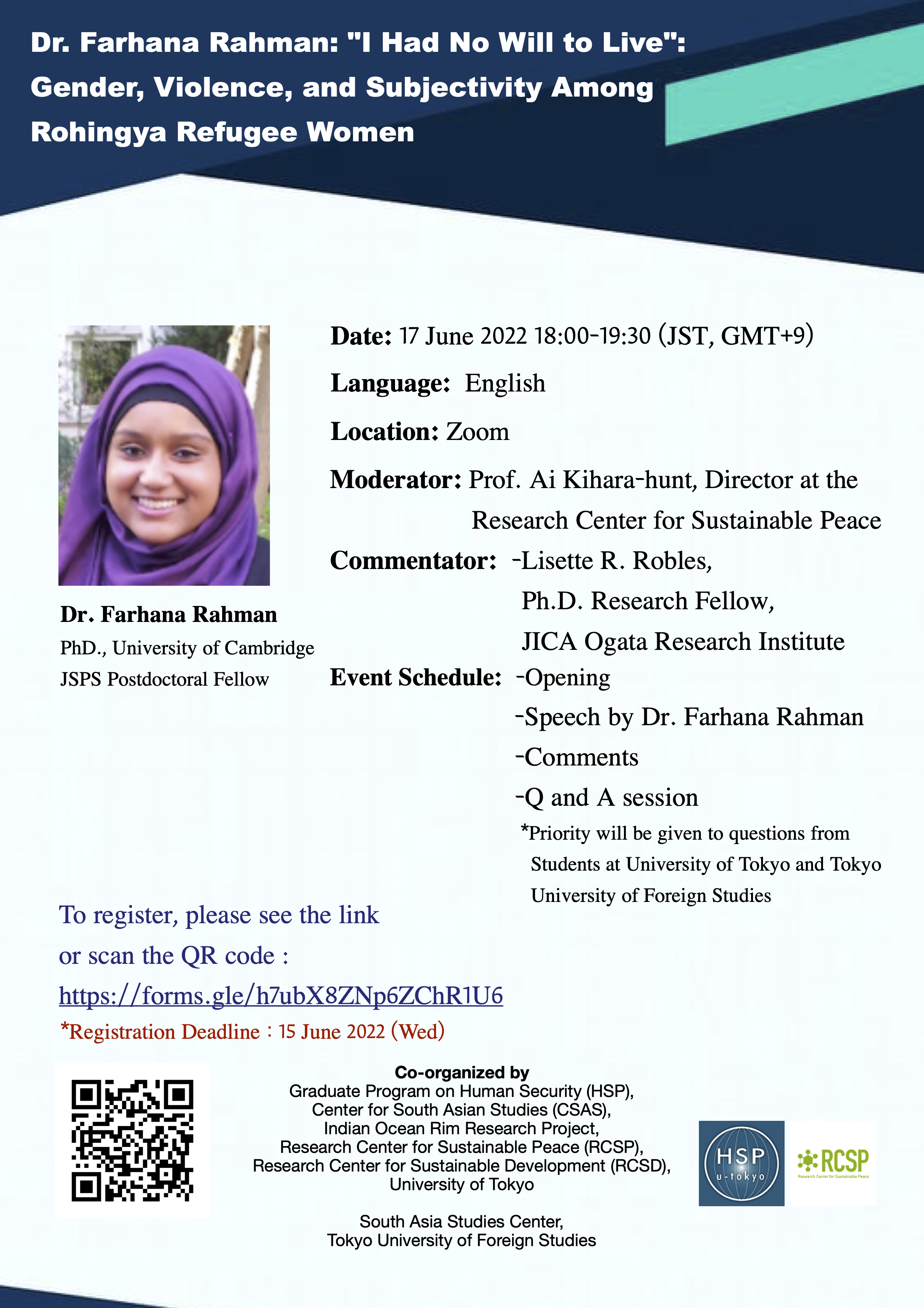HSP Seminar (#297) “Order in the Bazaar: Law, Norms, and Market Governance in Afghanistan’s Money Exchanger Market” (Jul. 8, 2022)

| Title | Order in the Bazaar: Law, Norms, and Market Governance in Afghanistan’s Money Exchanger Market |
| Descriptions | This presentation examines the micro-dynamics of legal order in Afghanistan’s central money exchange bazaar, Sarai Shahzada, a market of some 400 stores in the heart of Kabul where millions of dollars exchange hands each day. The money bazaar is unique not only because of its ability to operate based on its own community norms, but particularly because the scale of its activities is so extensive that it permeates virtually every aspect of the country’s economy. The money exchangers who work in the bazaar are responsible for currency exchanging, money transfers (hawala), deposit safekeeping, trade financing, informal credit, holding funds in escrow, and controlling the money supply. Based on 14 months of ethnographic fieldwork in Kabul, Afghanistan (from 2017-2018), the presentation explores the interdependence of state and non-state legal systems in the production of legal order in the bazaar. For most of its history, the bazaar has been governed by informal legal norms. New state-building measures after 2001 led to increased efforts by the state to regulate the bazaar, causing money exchangers to initiate internal transformations to protect their autonomy. The research shows the centrality of the state in consolidating the bazaar legal system. Exchangers have cast their non-state legal system in the image of the state by formalizing new operating rules that have introduced a management structure and dispute resolution forum. New state licenses have also helped to safeguard the boundaries of the bazaar. This research contributes to private governance and legal pluralism scholarship by revealing that a private community, even in a fragile state, may be capable of maintaining an autonomous non-state legal system not in spite of, but rather by depending on, the state. |
| Date | 8 July 2022 (18:00-19:30 Japan time, GMT+9) |
| Venue | Online venue, registration necessary at: https://forms.gle/1R3ZJ2RhXtsuf6Vg8 (Registration deadline: Wed. 6 July 2022) |
| Lecturer | Dr. Nafay Choudhury (PhD King’s College London/Jeremy Haworth Research Fellow, University of Cambridge/Visiting Researcher, University of Tokyo) |
| Discussant | Dr. Masato Toriya (Tokyo University of Foreign Studies) |
| Chairs | Associate Prof. Kensaku Mamiya (Tokyo University of Foreign Studies); Prof. Riho Isaka (University of Tokyo) |
| Language | English |
| Co-organizers | Graduate Program on Human Security (HSP); Center for South Asian Studies (CSAS); Indian Ocean Rim Project; Research Center for Sustainable Peace (RCSP); Research Center for Sustainable Development (RCSD), University of Tokyo; South Asia Studies Center, Tokyo University of Foreign Studies |
2022.6.28
HSP Seminar (#296) “南三陸ワークショップ 2 南三陸町の復興と観光” (Jul. 2, 2022)
2022.6.17
HSP Seminar (#295) “Refugee Education and Human Security: Perspectives from Rohingya Refugees in Japan” (Jul. 1, 2022)

| Title | Refugee Education and Human Security: Perspectives from Rohingya Refugees in Japan |
| Descriptions | This seminar will feature two lecturers involved in learning support projects for Rohingya refugees in Japan to discuss refugee education and human security. First, Dr. Hiromu Miyashita will give an overview of the Rohingya issue and the challenges of refugee asylum in Japan from the perspective of human security. Then, Ms. Khadiza Begum will report on the situation of Rohingya refugees in Japan from the viewpoint of the people concerned. For participation, please register by 30 June. |
| Date | 15:00–16:30, July 1, 2022 (Fri.) |
| Venue | Collaboration Room 3, 4th Floor, Building 18 (Map), University of Tokyo Komaba Campus; and Online Note: Please register by 30 June. |
| Lecturers | Hiromu Miyashita (Assistant Professor, Meijo University; Executive Director, Human Security Forum) Khadiza Begum (Rohingya Refugee; Secretariat, Human Security Forum) |
| Moderator | Ai Kihara-Hunt (Professor, Graduate Program on Human Security (HSP), the University of Tokyo) |
| Language | Japanese |
| Materials | Provided in the seminar if any. |
| Organizer | Graduate Program on Human Security (HSP), The University of Tokyo |
| Co-organizer | Research Center for Sustainable Peace (RCSP), Institute of Advanced Global Studies (IAGS), The University of Tokyo |
| Notes | There will be guests. Registration form: https://forms.gle/ABFvD9TmvsHnv3Fz5 |
2022.6.11
The Recording of the HSP Admission Guidance Session [closed]
We held the 1st HSP Admission Guidance Session on June 4, 2022.
You can watch the recording of the session below until June 17 (Fri.). Please check it out.
Note: The session was held in Japanese.
The recording has been closed.
2022.6.5
HSP Seminar (#294) “The Importance of Technology in Healthcare: Lessons learned from Thailand during the Covid-19 pandemic” (Jun. 12, 2022)

| Title | The Importance of Technology in Healthcare: Lessons learned from Thailand during the Covid-19 pandemic |
| Descriptions | This seminar mainly focuses on the use of technology to solve problems caused by the coronavirus. We hope to be able to share the experience of initiatives in Thailand with our earnest audience. We hope that private or government sectors in other countries could utilize the initiative cases in Thailand to adapt to the problems that occur in their own countries. The talk includes the use of a well-known application to manage the vaccination system, and the full-fledged service from the Thai start-up association to assist patient triage and quarantine delivery. This will help mitigate the influence of future crises and enhance promptly response to public needs during the emergency. This online webinar will be held to share the experiences of speakers on how they implemented technology and helped solve pandemic problems as well as obstacles they faced in Thailand. At the end of the event, we will have the Q&A session which let the audience ask the guest speakers questions directly. |
| Date | June 12, 2022 (Sun); 15:00 – 16:30 PM GST (GMT+9) |
| Venue | Zoom (Pre-registration required at Google Form ) |
| Speakers | Mr. Rungsun Promprasith(Founder of QueQ Application) Mr. Panachit Kittipanya-ngam (Founder of PedThaiSuPai Project) Chihiro Toya (PhD student, the University of Tokyo) Chanyaporn Aroonnetthong (Research student) |
| Moderator | Ai Kihara-Hunt (Professor, the University of Tokyo) |
| Language | English |
| Materials | To be distributed after registration if any. |
| Organizers | Graduate Program on Human Security (HSP) / Research Center for Sustainable Peace (RCSP) / International Law Training and Research Hub, the University of Tokyo |
| Notes | This seminar is part of the “Mutual Learning and Network Formation on Human Rights Best Practices by Non-State Actors in COVID responses” research project funded by the Toyota Foundation. |
2022.6.4
HSP Seminar (#293) “‘I Had No Will to Live’: Gender, Violence, and Subjectivity Among Rohingya Refugee Women” (Jun. 17, 2022)

| Title | “I Had No Will to Live”: Gender, Violence, and Subjectivity Among Rohingya Refugee Women |
| Descriptions | Until recently, Rohingyas making the perilous trek by boat and foot across the border into Bangladesh were predominantly male, as they were not only denied citizenship and legal rights in Myanmar but they also lacked economic opportunities within the country to support their families and communities. The 2017 attacks in Rakhine state, however, resulted in a drastic increase of women and girls undertaking these dangerous journeys to escape intense violence – including mass sexual violence – targeted against the Rohingya minority. The migration journeys of these women entailed not only violence and hardship, but also regular incidents of exploitation, including trafficking, rape, and forced marriage. Based on 14 months of feminist ethnographic research, this paper traces Rohingya women’s lived experiences of violence and conflict during and after forced migration on their everyday lives and subjectivities in the squalid camps in Cox’s Bazar, Bangladesh. It shines a nuanced lens on the gendered impacts of forced migration, and the ways in which Rohingya women learn to negotiate and navigate within and against this precarious environment by employing strategies of survival. Rohingya refugee women’s narratives thus reveal the construction of new gendered identities in displacement, and evidence women’s incredible resilience in spite of profound trauma and suffering. |
| Date | 17 June 2022 (Friday), 18:00-19:30 JST (GMT+9) |
| Venue | Zoom (Pre-registration required: Google Form) Registration Deadline: 15 June 2022 (Wed) |
| Lecturer | Dr. Farhana Rahman (Ph.D., University of Cambridge, JSPS Postdoctoral Fellow) |
| Commentator | Lisette R. Robles, Ph.D. (Research Fellow, JICA Ogata Research Institute) |
| Moderator | Ai Kihara-Hunt (Professor, the University of Tokyo) |
| Language | English |
| Co-organizers | Graduate Program on Human Security (HSP) / Center for South Asian Studies (CSAS) / Indian Ocean Rim Research Project / Research Center for Sustainable Peace (RCSP) / Research Center for Sustainable Development (RCSD) / South Asia Studies Center, Tokyo University of Foreign Studies |
2022.6.1




